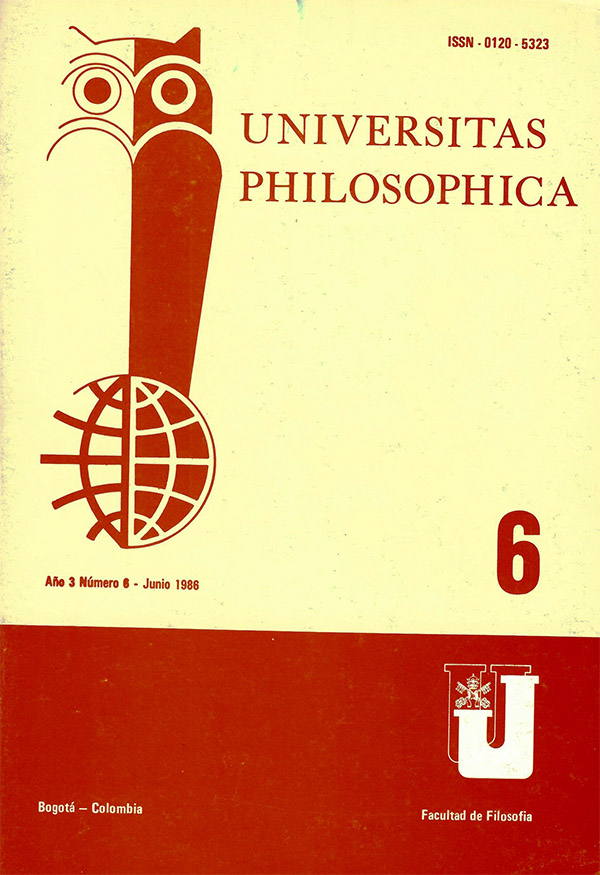Abstract
Se trata de plantear que la metafísica sigue siendo necesaria para la fundamentación filosófica. Que las críticas que se hacen son críticas a los contenidos concretos de las ontologías especiales. El camino que sigo es el siguiente:
1. Clarificar qué es metafísica, como fundamento, para distinguirla de la ontología, como lugar de la manifestación del ser-en-el-ente.
2. Explicitar cómo la fundamentación metafísica se manifiesta a través de las ontologías, y como el filosofar es situado, las ontologías también. De modo que —como el ser no se manifiesta inmediatamente en nuestro conocer, sino que su acceso es dificil por ser lo más lejano ala experiencia sensible— se siguen derroteros diferentes en esa explicitación del ser en el ente. Por ejemplo: Para Aristóteles lo más apropiado es la sustancia; para Tomás de Aquino los entes; para Heidegger el Da-sein.
3. Mostrar que las críticas a los contenidos de las ontologías concretas no alcanzan a invalidar la necesidad de la fundamentación metafísica, sino, al contrario, la exigen con más urgencia.
Para esta reflexión me he basado fundamentalmente en textos de Aristóteles, Tomás de Aquino, Kant y Heidegger.
This journal is registered under a Creative Commons Attribution 4.0 International Public License. Thus, this work may be reproduced, distributed, and publicly shared in digital format, as long as the names of the authors and Pontificia Universidad Javeriana are acknowledged. Others are allowed to quote, adapt, transform, auto-archive, republish, and create based on this material, for any purpose (even commercial ones), provided the authorship is duly acknowledged, a link to the original work is provided, and it is specified if changes have been made. Pontificia Universidad Javeriana does not hold the rights of published works and the authors are solely responsible for the contents of their works; they keep the moral, intellectual, privacy, and publicity rights.
Approving the intervention of the work (review, copy-editing, translation, layout) and the following outreach, are granted through an use license and not through an assignment of rights. This means the journal and Pontificia Universidad Javeriana cannot be held responsible for any ethical malpractice by the authors. As a consequence of the protection granted by the use license, the journal is not required to publish recantations or modify information already published, unless the errata stems from the editorial management process. Publishing contents in this journal does not generate royalties for contributors.


